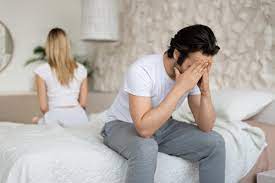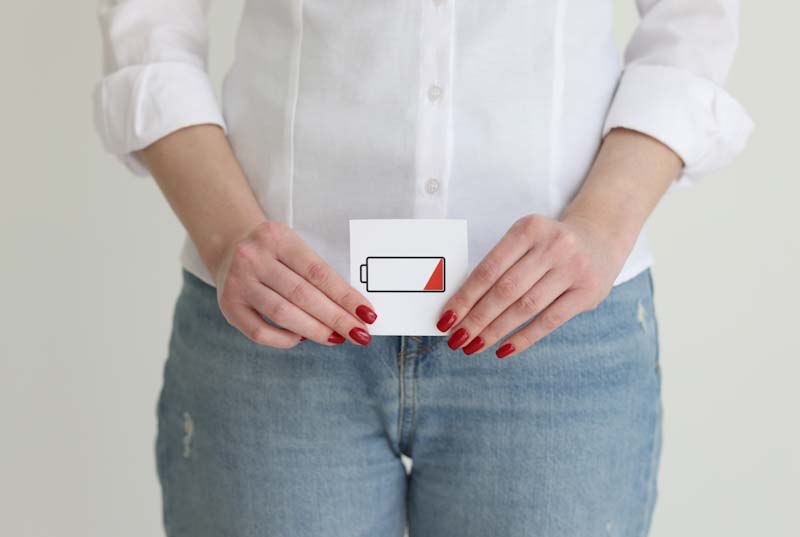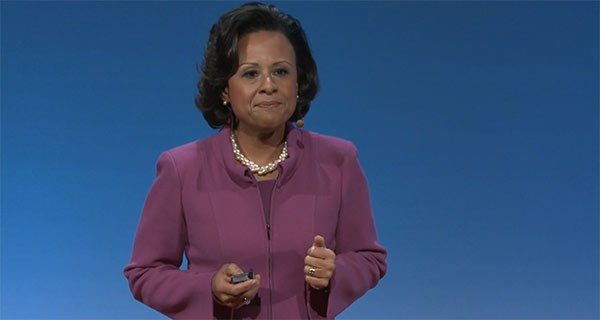
Low Libido
In the previous article on Low Libido, we explored the Causes and Symptoms of Low Libido. Understanding why someone may be experiencing low libido can feel perplexing, but it’s a critical step in finding the right help.
In this article, we’ll explore how professionals diagnose this condition—considering both physical and psychological angles—and discuss tailored low libido treatment approaches that may range from medication adjustments to novel therapies, all with an emphasis on improving quality of life for low libido cure.
Low Libido : How it is diagnosed
We often see people who worry about their low sexual desire. To find out what’s causing it, doctors and therapists use different methods.
- Talk to a doctor: A doctor asks questions about your health, emotions, and sex life.
- Physical exam: This checks your overall health to see if there’s a physical reason for low libido.
- Blood tests: These can show if you have hormone issues or other medical conditions affecting your sex drive.
- Review of medications: Some drugs can lower your sexual desire. Your doctor will look at what you’re taking.
- Psychological evaluation: A therapist may discuss feelings and relationships to find emotional causes.
- Hormone levels check: Testing for testosterone, estrogen, or other hormones can help identify imbalances.
- Lifestyle factors assessment: Lack of sleep or high stress might be part of the issue.
Low Libido : Medications and Therapies
Low libido treatment often involves medications and therapies. Doctors look at your symptoms and health to find the best options for you.
- Doctors may suggest changing your current medication if it’s causing your low libido.
- For treatment for low libido in females, hormone therapy can help balance levels.
- Sex education is also important to understand one’s body and desires better.
- Some FDA – approved medications specifically target low libido in premenopausal women, like flibanserin (Addyi®) and bremelanotide (Vyleesi®)
- Antidepressants or blood pressure medicine might lower your sex drive; letting your doctor know is crucial.
- Therapy sessions, either solo or with a partner, can address psychological factors affecting libido.
- Lifestyle changes, like diet and exercise, are paired with low libido treatment for better results.
- Natural remedies may be suggested as supplements to medical low libido treatment—if clinically appropriate.
- In certain cases, doctors recommend sex therapy which focuses on emotional barriers related to intimacy.
Low Libido: Lifestyle changes and self-care tips
Low libido can be a tough challenge, but we’re not helpless. Making positive changes in our daily lives can act as a Low Libido cure with a big impact on our sexual desire. Here are some actions we can take:
- Exercise regularly to boost energy and improve mood. This helps the body release endorphins, which make us feel happier.
- Eat a balanced diet rich in essential nutrients like zinc and vitamin D to maintain a healthy libido.
- Get enough sleep to ensure our bodies and minds are well-rested and ready for intimacy.
- Manage stress with mindfulness or yoga. These practices calm the mind and reduce anxiety.
- Talk openly with our partners about desires and concerns. Communication strengthens relationships and can increase desire.
- Limit alcohol intake as it can dampen sexual drive over time.
- Quit smoking since it affects blood flow, which is crucial for arousal.
- Explore new activities with your partner outside the bedroom to deepen your emotional connection.
- Make time for intimacy even if it’s just cuddling or holding hands to maintain a physical connection with your partner.
Low Libido Treatment Options in Chicago
Chicago offers many ways to help people with low libido cure. Doctors can prescribe FDA-approved medicines like Vyleesi and Addyi for women. These low libido treatments aim to boost sexual desire and are available in our city.
We also have specialists who create personalized low libido treatment plans based on each person’s needs. They might suggest sex education, counseling or therapy, especially if stress or relationship problems are the cause.
For menopause-related sexual issues, hormone therapies like estrogen and androgen might be used along with psychological support to tackle any linked depression.
Men in Chicago dealing with low libido aren’t left out either. For decreased low libido in males, testosterone therapy can help them feel better. Lifestyle changes such as diet adjustments, regular exercise, and stress reduction techniques can also play a big part in improving sexual health for everyone.
Heal n Cure Medical Wellness Center in Glenview, use a functional medicine approach which looks at your whole health picture. Tests might be done to check hormones or nutrient levels to find anything out of balance. Then they make low libido treatment plans just for you – these could include natural remedies or supplements proven to help with libido issues.
If you’re struggling with low sexual desire in Chicago, know there are low libido cure options ready for you here!
Wellness Consultation for Low Libido Treatment
We understand that managing low libido can be challenging. A wellness consultation can be a helpful first step. It’s time to talk with health professionals who know how to help. They can ask the right questions and find what may cause your low libido.
Sometimes, it’s stress or a side effect from the medicine you’re taking. Other times, it might be hormone changes or relationship issues.
During the consultation, we’ll look at your whole health history. We’ll consider everything from diet and exercise to stress levels and sleep patterns. Our goal is to find natural ways to boost your libido along with any needed medical low libido treatments. This could include things like changing medication, trying supplements for libido, or exploring hormone therapy options if necessary. We aim to create personalized low libido treatment plans that work best for you.
Remember, feeling less interested in sex than you used to can be tough. It happens for many reasons — from stress and hormone changes to medication effects. Luckily, there are ways to address it, whether through lifestyle shifts or medical help. If low libido is bothering you, don’t hesitate to reach out for support. Health professionals are ready to assist and guide you toward feeling more like yourself again.
Hormone Replacement Therapy and Low Libido
Hormone Replacement Therapy (HRT) plays a big role in low libido cure, especially during menopause. As estrogen levels drop, many women notice their desire for sex starts to wane. HRT can give these hormone levels a boost. In fact, it often helps with vaginal dryness and discomfort during sex. But we must remember that each woman’s body responds differently to hormones.
Some doctors might suggest testosterone therapy as a treatment for decreased libido in females. This isn’t always standard practice but it can work wonders for some. On the flip side, too much of certain estrogens in HRT might lower libido in both women and men experiencing hormonal changes like menopause or andropause.
We keep an eye on the balance of hormones with medically monitored low libido treatment at Heal n Cure Medical Wellness Center to help our patients maintain an active sex life without unwanted side effects.
It’s all about finding that sweet spot where everything feels right again – physically and emotionally.
Key Takeaways
- Low libido means having less desire for sex. It affects up to 46% of the general population and over 50% of naturally menopausal women.
- Many things can cause low libido, like stress, hormone changes, chronic illnesses, medications, and aging.
- Hormone Replacement Therapy (HRT) helps some women with low libido during menopause by balancing sex hormones.
- Symptoms of low libido include decreased sexual interest, difficulty becoming aroused, and not wanting to engage in sexual activities.
- Treatments vary but can include identifying medications that lower libido, hormone therapy for balance issues or FDA-approved drugs for premenopausal women.


